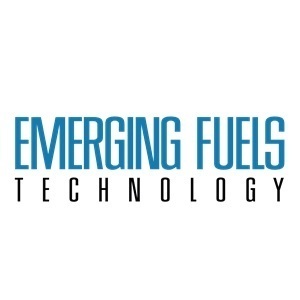Emerging Fuels Technology introduces Maxx Jet, Maxx Diesel

February 9, 2022
BY Emerging Fuels Technology
Emerging Fuels Technology, a technology company focused on methods for producing synthetic fuels from feedstocks such as natural gas, flared gas, biogas, biomass, municipal solid waste, CO2 and more, on Feb. 8 introduced its Maxx Jet and Maxx Diesel proprietary methods, which employ a unique catalyst system made for EFT by Haldor Topsoe. The process is ideally configured to pair with EFT’s Fischer Tropsch technology to provide a scalable, sustainable path for converting Fischer Tropsch syncrude into very high yields of high-quality jet fuel and diesel fuel products. Maxx Jet technology was recently used to make jet fuel from CO2 for the Air Force in partnership with Twelve.
The need for sustainable fuels - especially jet fuel - is immediate and apparent as global aviation produces 1.2 billion tons of CO2 emissions every year. With a commitment from those across the industry to make significant advancements toward widespread adoption of sustainable aviation fuel (SAF), EFT is well positioned to bring high yield, high quality jet fuel to market with its sustainable process.
Advertisement
“We are excited to offer these yield and quality improvements and very pleased to be working with Haldor Topsoe to manufacture our proprietary hydroprocessing catalysts,” said Kenneth Agee, president of EFT. “Our proven process can be a valuable resource to an industry in great need of alternative fuel sources.”
EFT’s Maxx Jet and Maxx Diesel combines novel equipment design and a tailored stacked bed catalyst system to achieve superior yields and product properties such as jet fuel with a freeze point below -55°C – a key property for high quality jet fuels. Improvements in diesel yields and properties are similar. EFT plans to use Maxx Jet and Maxx Diesel technology in its BioGTL and FlareBuster projects, and to license it in combination with its Fischer Tropsch technology system for renewable fuels projects around the world. The combined method provides a highly effective way to convert any source of synthesis gas from biomass, biogas or CO2 into the highest yield and quality of jet and diesel fuel products.
Advertisement
“As an organization committed to reducing carbon emissions, it’s a great opportunity to work with EFT and be an integral part of creating high-yield, high-quality fuels, which are in high demand,” said Henrik Rasmussen, managing director at Haldor Topsoe Inc.
Related Stories
Neste and FedEx, the world’s largest express cargo airline, have agreed on the supply of 8,800 metric tons (more than 3 million gallons) of blended Neste MY Sustainable Aviation Fuel to FedEx at Los Angeles International Airport (LAX).
The U.S. EPA on May 14 delivered two RFS rulemakings to the White House OMB, beginning the interagency review process. One rule focuses on RFS RVOs and the other focuses on a partial waiver of the 2024 cellulosic RVO.
The U.S. EPA on May 15 released data showing nearly 1.79 billion RINs were generated under the RFS in April, down from 2.09 million generated during the same month of last year. Total RIN generation for the first four months of 2025 was 7.12 billion.
Calumet Inc. on May 9 announced sustainable aviation fuel (SAF) capacity at its Montana Renewables biorefinery is expected to reach 120 MMgy to 150 MMgy sooner than previously reported for a fraction of the originally expected cost.
Tidewater Renewables on May 8 announced that its 3,000-barrel-per-day renewable diesel plant in Prince George, British Columbia, operated at 75% capacity during the first quarter, up from 71% during the same period of last year.
Upcoming Events










